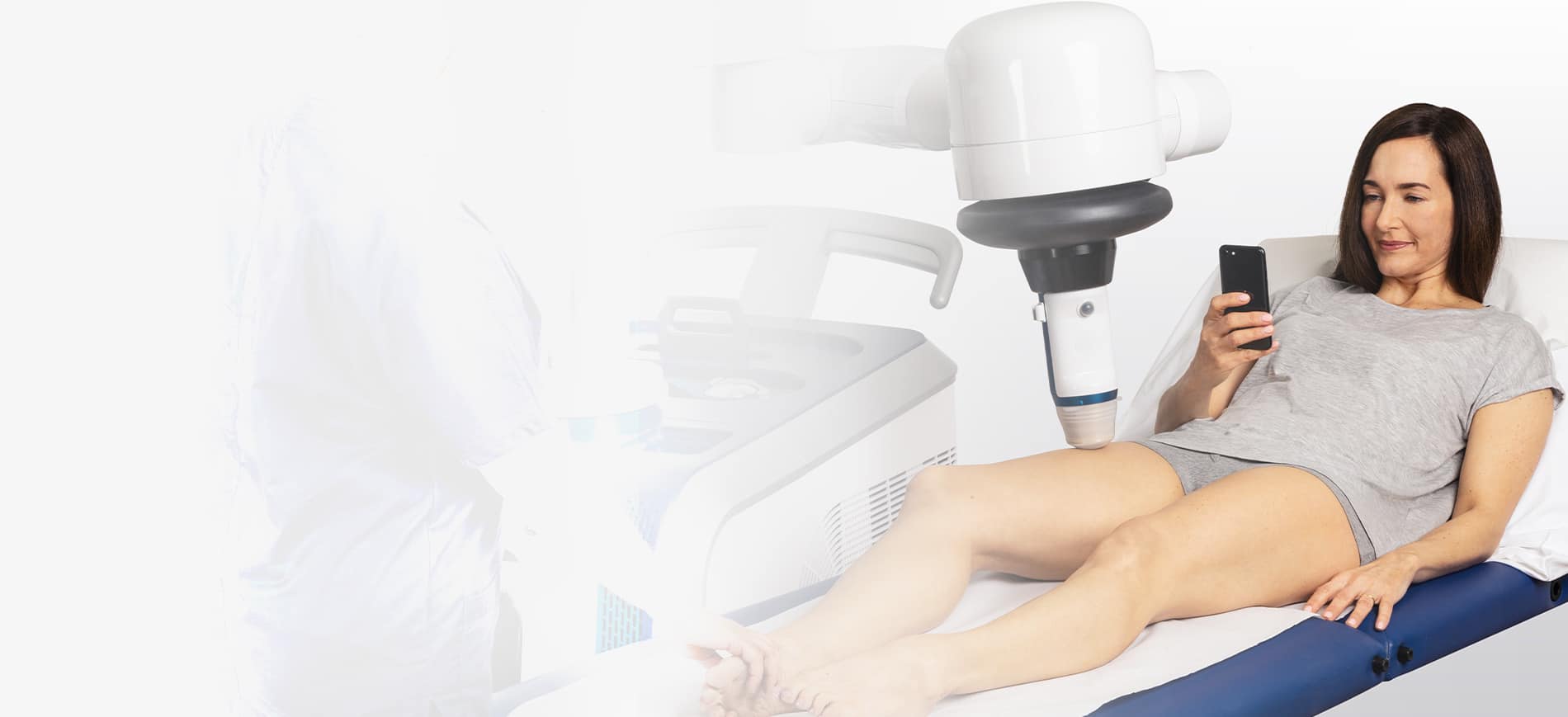Do you have swollen veins in your leg, and are you wondering what might be the reason for your heavy legs?
The medical term for swollen and enlarged veins is varicose veins (or varicoses). Any vein that is close to the skin’s surface can become varicosed, but most commonly, varicose veins affect the veins in the legs. The main causes for varicose veins are weak vein walls and valves. Inside your veins, there are tiny one-way valves that open to let the blood through, and then close to prevent it from flowing backwards. Sometimes the walls of the veins become stretched and lose their elasticity, causing the valves to weaken. If the valves do not function properly, this can cause the blood to leak and flow backwards. If this happens, the blood collects in your veins, which become swollen and enlarged.
Sitting or standing for long periods can be one reason. It causes the blood to pool in the leg veins, increasing the pressure within the veins that may start stretching from the increased pressure.
How to avoid swollen and enlarged veins in your leg?
Bulging veins in your legs do not look nice, and they can be painful. They are partly due to genetic predisposition; if both of your parents have varicose veins you have a 90% chance of developing varicose veins at some time in your life. 1 However, with a few simple lifestyle changes, you can do a lot to avoid or ease varicose veins.
Tip #1: Get moving
Exercising can have a lot of positive effects on your health and well-being – and it can also help prevent swollen veins in your legs. Building on your leg muscles is especially beneficial as they help your veins push blood to the heart. This is very useful since your muscles are working against gravity. Any leg exercises will therefore help prevent the appearance of new varicose veins.
Tip #2: Change your diet
Eating healthy can also help keep your veins healthy. There are a few foods that have a positive impact on your leg veins:
- Avocados: Avocados are a trend food for a reason. They are loaded with vitamins C and E, which are known to be great for vein health. Glutathione is also present in avocados, and this is known to protect your arteries and your veins.
- Beets: They are filled with a phytochemical compound that helps lower the levels of a naturally occurring amino acid in your body that can sometimes attack blood vessels.
- Asparagus: The vegetable is full of vitamins, fiber, and calcium – and a must-eat on your plate if you want to keep your veins healthy.
- Rosemary: Known to get the circulation moving again, rosemary is a great herb to add to your diet. In addition, it contains a compound called rosmarinic acid that helps protect your tissues from free radicals.
- Ginger: Known for increasing circulation, (ideally fresh) ginger is a great addition to your food list.
- Rutin-filled foods like cherries, blueberries, and grapes: Rutin is a flavonoid that helps lower cholesterol and blood pressure, as well as keep your veins strong. It can be found in numerous fruits.
Tip #3: Avoid long periods of sitting or standing
Are you working in an office? Then you are at increased risk of developing varicose veins. Take a break at least every 30 minutes to stand up from your desk and walk for a short while. This movement forces your leg muscles to pump blood up to your heart more than when you are sitting. And if you are standing for long periods in your job, plan for similar breaks to sit for a while.
Interested in learning more about the symptoms of varicose veins and how they can be treated? https://echotherapie.com/varicose-veins/#varicose-veins-symptoms
1The influence of environmental factors in chronic venous insufficiency. Angiology, 2003. 54 Suppl 1: p. S19-31: https://pubmed.ncbi.nlm.nih.gov/12934754/






